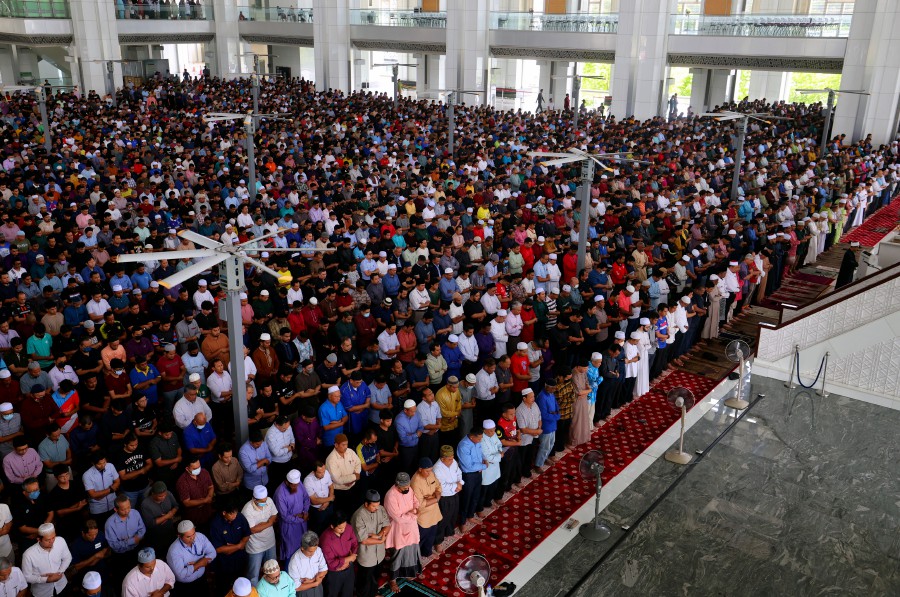In this country, it appears that a simple "ustaz" or "lebai" title is enough to brand other Muslims as aberrant, opposed to the holy Quran, or even kafir.
In the ongoing polemic about the "Seven Sleepers", a prominent religious teacher from the East Coast not only commented on the pure faith and proper religious term of the era of Ashabul Kahfi but also excessively criticised Prime Minister Datuk Seri Anwar Ibrahim.
He harshly accused the PM of lacking basic Islamic understanding, "jahil" and being estranged from religious experts. We may go on and on about the religion of the seven young men who slept in the Kahfi cave for 309 years.
Depending on the context, the Islamic community, or ijmak ulama, has a different consensus. Anyway, to issue a fatwa — or even label other Muslims, also known in Islamic jurisprudence tradition as "takfiri" — was a detached case.
A fatwa does not have to be issued by an ulama or grand mufti. Even musyawarah or meetings among Islamic jurisconsults do not seem to be required. A daily kuliah at a surau or masjid can serve the purpose just fine.
Political speech campaigns after Isya occasionally offer instant fatwas. Muslims have become more genuinely interested in their faith in recent decades, especially since the government implemented its Islamisation agenda in the 1990s.
These trends show a growing interest in Islamic tenets and practices in myriad parts of our society. The current era has witnessed a remarkable addition of new mosques, tahfiz centres, and Islamic institutions, such as universities and banks, which have become increasingly vital in daily life, such as in education and economics.
Muslim women wearing headscarves have become a common sight and a large number of our youth have been sent abroad to pursue theological studies.
There is a substantial demand for a variety of religious products and services, such as halal certificates, muslimah garments, religious motivational publications or even first-class packages for performing umrah or pilgrimage, al-rahnu tax liens, syariah compliance products and more.
During Ramadan, some mosques hire foreign and local imams to conduct tarawih. Therefore, it is absurd to believe that the political hyperbole of "Islam is under threat" is real because there is no evidence to back such an allegation.
The kernel of Islam has remained unchanged, yet it appears that the ummah is vulnerable to distortion as commercialism penetrates deeper and deeper into faith territory.
The quest for fame and popularity is a common topic of conversation in modern culture and the emergence of social media has aggravated the concern. This cultural splendour existed among the broader folk, including religious leaders, by stressing celebrity status.
In one of his literary works titled Vocation de I'Islam, published in the French language in 1954, Malek Benabi, an Algerian thinker, elaborates on the perplexity that prevailed among Muslims worldwide in the post-colonisation era.
Benabi penned that the Western concept of modernity has resulted in a condition of disarray among Muslim beliefs and perceptions of life's purpose. The Muslim world has been in a state of weakness since the fall of the golden age of the al-Muwahhid empire.
They never returned and never made notable contributions such as in architecture, art, science, technology or philosophy again. Instead, they have become mere consumers of Western and other global products, including knowledge and culture.
The idolisation of religious personalities is a result of Western modernity, as is the commercialisation of religion. That was the dark side of the Western popularism concept, which had infiltrated many traditions, including Muslim culture as well.
The emphasis in the Western idea of modernity is not only on producing commodities but also on developing demands for those goods through popularism. The main issue is not the product's quality but its popularity and capacity to sell. Thus, celebrities help popularise products.
Religion has been considered a "commodity" in contemporary times, not to the nature of religion itself. The teachings of Prophet Muhammad SAW have always stressed Islam as a way of life rather than a commodity.
During the Dark Ages in Europe, religion and commerce became entwined when Catholic churches began to sell letters of remission of sins. The more sins someone committed, the more money they had to pay. As a result of this practice, churches finally took possession of mortgaged lands.
Thankfully, throughout Islamic history, religion has never been commercialised. However, it is troubling that commercial characteristics are infiltrating through other channels. This could lead to individuals, political groups or organisations hijacking Islam's sanctity.
It's unorthodox to equate popularity with truth, but in today's social media-driven world, the number of followers seem to define what is true. Therefore, Muslims — but not Islam — were under threat, and the probable hazard that Muslims have steadfastly engaged has come not just from the outside but also from the innards.
It's common for celebrities to indulge in gossip or make off-the-cuff or impromptu remarks about their profession or craft. The best approach to achieving success as an artist is to use one's God-given gifts rather than misuse religion for popularity or selfish ends.
When it comes to religious matters, even illustrious figures like "celebrity ustaz" should be mindful of their words as they carry a resonant significance for other Muslim brothers and sisters' faith, which is an integral component of Islamic pillars.
In religious talks, one must remember that they are not just portraying their viewpoints but correspondingly taking on a higher level of accountability before God.
* The writer, also known as Buddhi Hekayat, is former policy director at the Selangor Menteri Besar's office (2015-2018), a political activist and an award-winning lyricist. His writing can be read at hasmihashim.com





